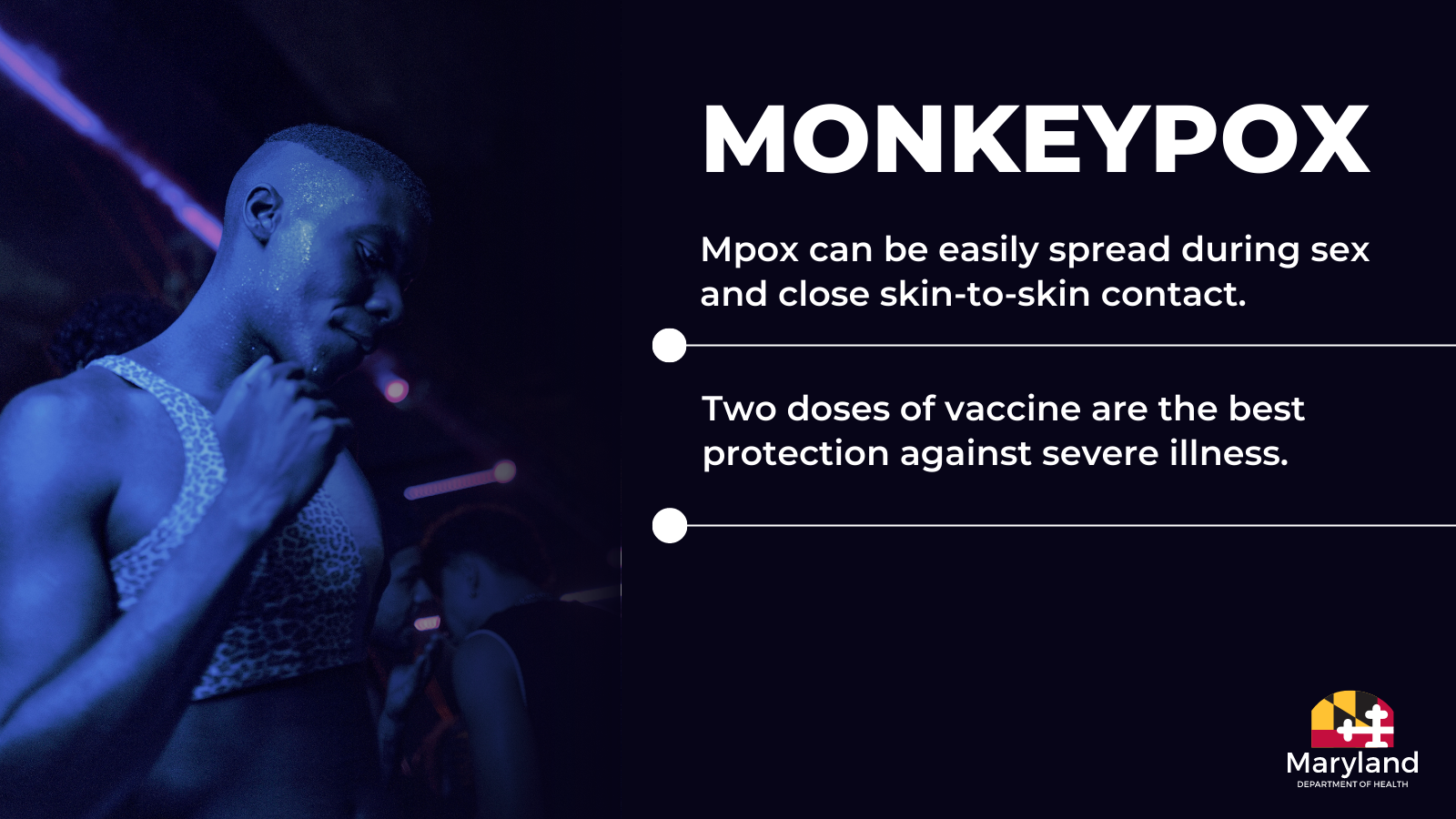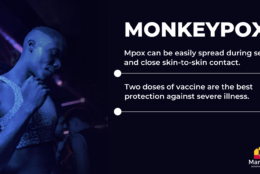



This Pride Month, the Maryland Department of Health has launched a “Get Your Pride On” campaign aimed at spreading information about sexual health, and it’s using dating apps to reach LGBTQ users.
Peter DeMartino, director of the department’s infectious disease prevention bureau, said it’s the first time the state has launched this type of initiative during Pride Month. The campaign is different, he said, because it’s not only inclusive of the LGBTQIA community, but “it’s also probably the first time that we’ve released an integrated sexual health campaign.”
The health department will be at many Pride events across Maryland, but the primary focus of the initiative is promoting mpox vaccinations, testing for HIV and sexually transmitted infections and spreading information about pre-exposure prophylaxis prep for HIV prevention.
“You want to know what your blood sugar is, you want to know what your cholesterol is,” DeMartino said. “In the same way, you want to know what your HIV status is, and you want to make sure that you are getting tested on a regular basis, if you’re sexually active, for STI. It really should just be a routine part of health care.”
The health department spent about three months seeking community input and planning for the campaign to launch. This week, some of the promotions started appearing on bus trailers and shelters across the region.
The department is also using dating apps to create awareness. Digital ads that DeMartino described as “very colorful and very celebratory” are appearing on Scruff, Grindr and Jack’d.
“Lots of pictures of folks who are gender diverse, racially diverse, really reflective of what Maryland’s community looks like, and just exuberant images of folks enjoying life, which is part of our message,” DeMartino said.
The impact of the mpox outbreak has diminished, DeMartino said, but as is the case for other infectious diseases, “we want to make sure that the prevention tools are out there in the community.” In the past few weeks, he said, the department has observed an uptick in people getting the mpox vaccine.
“We are hoping that the campaign is not only being accepted by the community, but also having the impact we want,” DeMartino said.
Some 700 Marylanders annually have been diagnosed with HIV in the last few years, he said, but “HIV is very different than it was when it was making headlines decades ago,” DeMartino said, because people are living longer with it.
And, as people feel more comfortable seeking routine medical care in the aftermath of the pandemic, DeMartino said gonorrhea and syphilis diagnoses are increasing.
“Regionally, there’s been a lot of concern about congenital syphilis, so birthing parents transferring syphilis to a newborn,” he said. “We’re doing a lot of work on that.”
One of the campaign’s goals, he said, is to make talking about getting vaccinated and screened for STIs part of “everyday language.”
“This is really an opportunity for us to make sure that we’re taking care of each other,” DeMartino said. “If we don’t take care of our health, and the health of those we love and those that we’re going to be seeing during this month, who will?”








